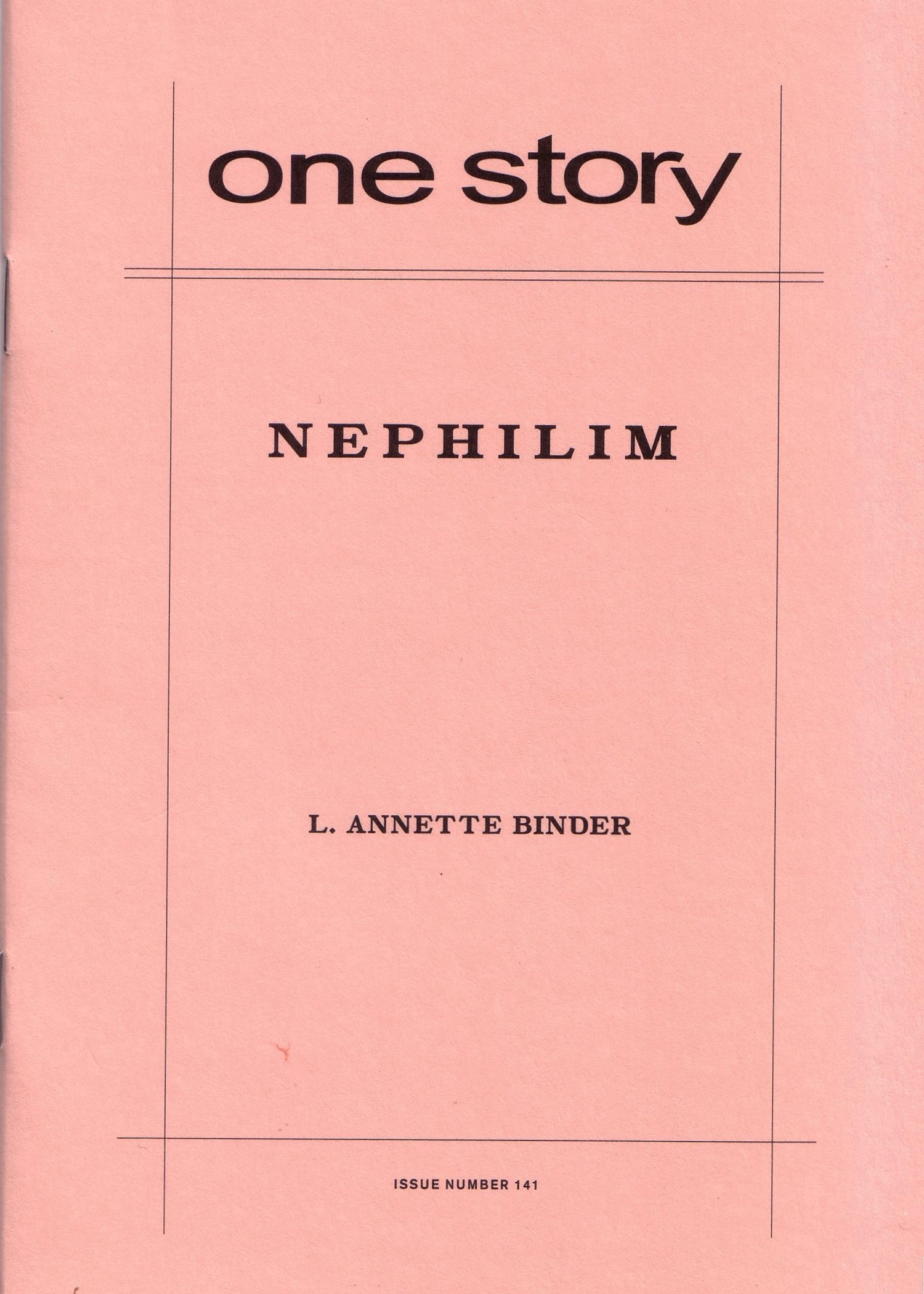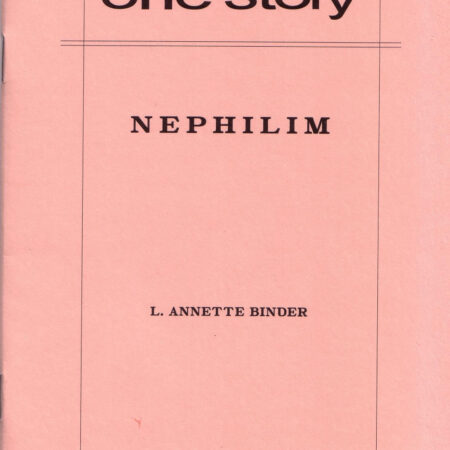
Nephilim
$2.50
58 in stock
Excerpt
Freda weighed eighteen pounds when she was born. Her feet were each six inches long. At ten, she was taller than her father. Five feet eleven and one-half inches standing in her socks. I can’t keep you in shoes, her mother would say, and they went to Woolworth’s for men’s cloth slippers. Her mother cut them open up front to leave room for Freda’s toes. She’d stitch flowers in the fabric to pretty up the seams, forget-me-nots and daisies and yellow bushel roses. They sat beside the radio and listened to The Doctor’s Wife and Tales of the Texas Rangers while her mother worked the needle. Some of your daddy’s people are tall, she’d say. Your Aunt Mary had hands like a butcher. By God, her grip was strong.
Sometimes Freda felt her bones growing while she lay in bed. This was when the sensation was still new. Before it became as familiar as the pounding of her heart. The house was quiet except for the planes out by the base and Tishko, the Weavers’ dog, who barked at the moon and stars. That dog’s got a streak in him, Mr. Weaver always said. I bet he’s part wolf on his momma’s side.
L. Annette Binder
L. Annette Binder was born in Germany and grew up in Colorado Springs, Colorado. Her stories have appeared in The Southern Review, Bellingham Review, The Beloit Fiction Journal, Avery Anthology and others. Her work was a finalist for the 2010 Flannery O’Connor Award for Short Fiction. She is a student in the Programs in Writing at the University of California, Irvine.
Q&A by Pei-Ling Lue
- PL: Where did the idea for this story come from?
- LB: I’m very interested in the body as an electrical machine and how our wiring affects our experience and self-conception. Déjà-vu is this stutter step of comprehension; due to a glitch in our wiring, we get signals on a delay so we immediately assume we have been here before. But I also feel like déjà-vu is something much deeper—a fleeting pointer to an infinite experience: we have already experienced everything already, yet we don’t fully realize it. Sounds Borgesian, or Buddhist, or Kantian, I know, but this knowledge of complete experience haunts me. It’s interesting that Valise is plagued by a déjà-vu when he goes to this horrific city under siege. His body is trying to retreat to familiar ground, but in doing so, it’s implicating itself in a war. If he has already been here, then he is already complicit in the violence.
- PL: What was the most challenging aspect of writing this story?
- LB:
- PL: How much research did you do on gigantism and what challenges did you face writing about this topic?
- LB:
- PL: The details of mountains, nephilim, giants, and the setting of Colorado tie together so well in this story. Did you plan to write about nephilim with Colorado and the mountains in mind or was it a happy accident?
- LB:
- PL: Despite Freda and Teddy’s deep connection, there is also a distance between them. How did you come up with the idea for this relationship?
- LB:
- PL: I noticed throughout the story that you rarely used Freda and Teddy’s names. You refer to them mostly as she and he. Was this intentional?
- LB:
- PL: The last scene of the story is so powerful. Despite the love Freda feels for Teddy, she cannot open herself up to him. Did you know when you started writing this piece that the story would end this way? What does Teddy feel as he walks away from Freda’s house?
- LB:
- PL: How long did it take you to complete this story?
- LB:
- PL: What are you working on now?
- LB:
- PL: What is the best bit of advice about writing you have ever received?
- LB:
